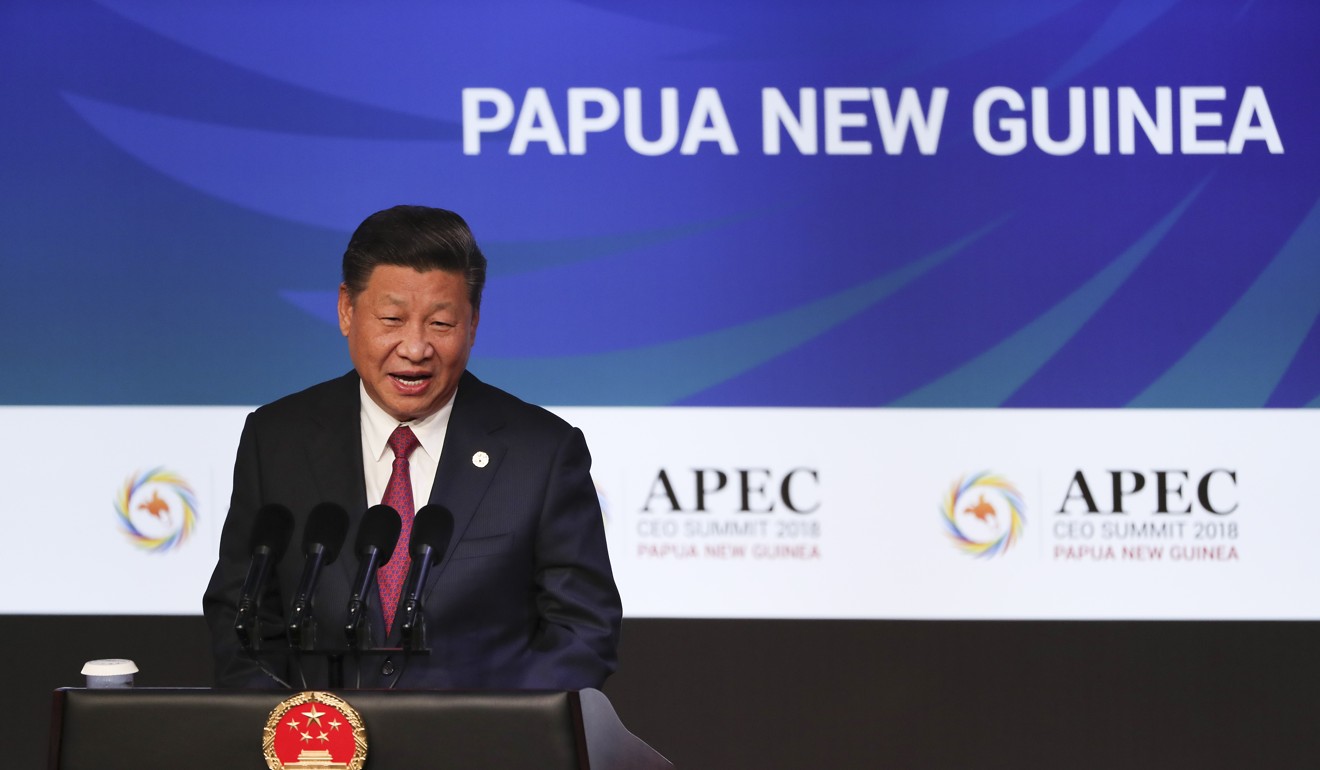
China central bank adviser Liu Shijin joins chorus urging government to embrace pro-market reforms
- Caixin conference told that opening up the economy further will help ‘win favourable international conditions’
- Liu Shijin is latest in string of economists and government advisers calling for reforms that could help ease trade war tensions
China should adopt a market-based growth strategy and respond to international criticism by further opening up its economy, an adviser to the central bank said on Tuesday.
Liu Shijin’s comments that China could only “win favourable international conditions” by “standing on a higher platform” add to a growing chorus from economists and government advisers calling for Beijing to embrace reforms.
The volume of such pro-market comments in recent weeks suggests a growing debate in policymaking circles about what the government should do to end the trade war.
Liu, deputy head of the China Development Research Foundation, a government think tank, told the annual Caixin conference in Beijing, that China has been a major beneficiary of globalisation over the past 40 years – benefitting from strong foreign investment inflows, strong demand for its exports and joining the World Trade Organisation in 2001.
But he also acknowledged that there had been a change in international attitudes towards China’s development model, urging the government to respond by deepening domestic restructuring and take the moral high ground on international governance standards.
When setting international trade rules, he said: “China should not be an outsider, but a leader.”
The world’s second largest economy is under heavy pressure to change its state-directed economic development model, a major grievance for the US in the current trade war.
China is not recognised as a market economy by the United States, the European Union and Japan because of what they say are excessive restrictions on market access and the lack of a level playing field for foreign firms.
Is China suffocating the most vital part of its economy amid US trade war?
Its status as a developing country is also being questioned, leading to calls to remove the preferential treatment it now enjoys in international organisations like the WTO.
Washington delivered the heaviest blow when it began the trade war in July, but Japan and the EU have joined forces in calling for changes to the WTO’s rules.
There is little sign yet that tensions between China and the US are easing – as seen in the recent Apec summit, where President Xi Jinping and Vice-President Mike Pence traded barbs and the event ended without agreement on a joint communique.
However, there are high hopes that the upcoming meeting at the G20 summit between Xi and Donald Trump can make progress towards ending the trade war.

Zhang Xiangchen, China’s ambassador to the WTO, was quoted by Reuters on Monday as saying the country will soon propose a reform plan for the international trade body.
At the conference in Beijing, Liu said China was at a crossroads.
Its choice – between continuing with its government-dictated industrial policy and economic interventionism and embracing more international competition by opening its doors wider – was being watched closely.
Beijing must show courage to fulfil market promises – top economist
Liu admitted that the government must confront the fundamental question of how much control it was willing to give up.
He attributed the country’s economic success over the past 40 years to the introduction of market forces and so urged the government to improve the market economy.
“A single action is better than a dozen of plans,” Liu said, highlighting the urgency of implementing reforms.
“We need to substantially push forward with reform of state-owned enterprises, land, finance, as well as the fiscal, tax and social security systems,” he added.

